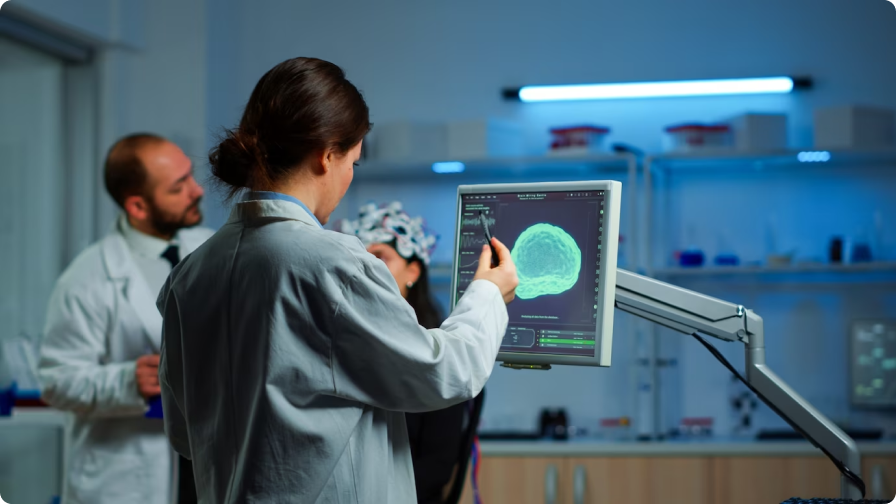Exploring AI applications and their impact on healthcare.

AI Applications in Healthcare:
-
Medical Imaging and Diagnosis:
AI-driven diagnostic tools can rapidly analyze medical images, such as X-rays, MRIs, and CT scans. These systems are capable of detecting anomalies and helping radiologists make more accurate and timely diagnoses.
-
Drug Discovery and Development:
AI algorithms can analyze vast datasets to identify potential drug candidates more efficiently. This significantly accelerates the drug development process and reduces costs.
-
Personalized Treatment Plans:
AI algorithms use patient data to create personalized treatment plans. This ensures that medical interventions are tailored to each patient's unique needs, increasing treatment efficacy and minimizing side effects.
-
Predictive Analytics:
Healthcare providers use predictive analytics to foresee disease outbreaks, patient admission rates, and even the likelihood of individual patients being readmitted. This proactive approach improves resource allocation and patient care.
-
Virtual Health Assistants:
AI-powered chatbots and virtual health assistants provide round-the-clock healthcare information and assistance. They help patients manage chronic conditions and provide immediate responses to their health-related queries.
-
Administrative Efficiency:
AI streamlines administrative tasks, from scheduling appointments to handling billing and insurance claims. This reduces administrative overhead and ensures healthcare facilities run more efficiently.
The Impact on Healthcare:
-
Faster and Accurate Diagnoses:
AI aids healthcare professionals in making faster and more precise diagnoses, leading to quicker treatments and improved patient outcomes.
-
Enhanced Patient Care:
Personalized treatment plans, real-time monitoring, and virtual assistants contribute to better patient care experiences.
-
Reduced Costs:
AI lowers healthcare costs by streamlining operations, reducing medical errors, and optimizing resource allocation.
-
Preventive Medicine:
Predictive analytics enable healthcare providers to focus on preventive measures and early intervention, which can ultimately save lives.
-
Access to Healthcare:
AI-powered telemedicine solutions extend healthcare access to remote and underserved areas, making healthcare more equitable.
Conclusion:
AI applications are driving a healthcare revolution, improving patient care, optimizing healthcare operations, and making the entire system more efficient. As technology continues to evolve, we can anticipate even more innovative AI solutions in healthcare, further enhancing the well-being of individuals and populations worldwide. The future of healthcare is not just human; it's human and AI working together for the greater good.
 Technology Trends
Technology Trends


